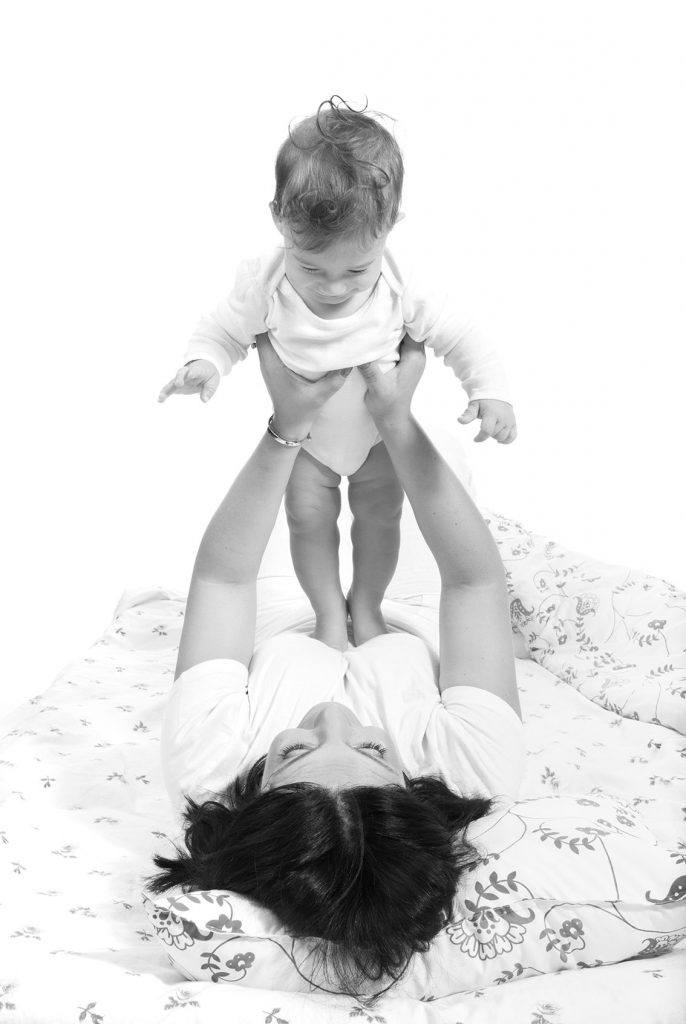WHAT DOES IT MEAN FOR YOU AND YOUR BABY?
By Pinky McKay

So often we look outwards to work out what is going on for our baby. Mothers are often told to check the clock to find out whether it’s time to feed or sleep. But tuning into your baby and responding to her signals will help her feel understood. You know how it feels when somebody ‘gets’ you? You feel they are there for you in a meaningful way. Rather than just going through the motions, they really understand. This is attunement – tuning into your baby’s subtle cues and responding appropriately to her needs.
Attunement is an intuitive process but can feel very difficult if you are being bombarded with advice or feeling very tired. So without being too hard on yourself, try to dismiss the advice that is playing like a tape inside your head as you check in and ask yourself: what is my baby trying to tell me? If you aren’t quite sure, watch how your baby responds when you try to meet her needs and, rather than being persuaded by advice that might not really be appropriate, ask yourself questions like: does my baby like being held this way? Does she settle when I follow this routine? How do I know what she likes?
By watching, waiting and wondering as you interact with your baby, and being respectful to her responses, you will discover her likes and preferences and how she likes to express these. This is attunement in action.
For most parents, tuning into your baby becomes increasingly natural as you get to know her and the subtleties of her body language, her facial expressions and her noises as she communicates with you. Cues, or non verbal language, are your baby’s way of telling you what she needs. Although it may take a few weeks to get to know your baby’s cues, if you watch closely, you will be amazed at how even very young babies can give clear signals that they want to interact, would prefer to be given a break from play or a situation that is becoming stressful, perhaps because it is overstimulating for your little one, or she is tired or hungry.
Responding to your baby’s cues day and night, will help your baby develop a sense of trust in her ability to influence her environment and will help her form a secure attachment to you. These are important prerequisites for later emotional development and relationships. Your responsiveness will also help your baby learn what psychologists call ’emotional regulation’, which is the capacity to understand that we have control over our emotions. As you soothe your baby, you are teaching her that when she is upset, she can calm down. When a baby’s signals are ignored, and they escalate to cries that are not responded to, the baby fails to develop the understanding that she can regulate his own emotions.
While tuning in to your baby may seem a ‘tall order’ – especially at first – and a huge responsibility, please don’t feel stressed if you are a bit confused about what your baby is trying to tell you or if you get it wrong sometimes. It’s perfectly normal for parents to feel out of sync, then to get back in tune with their littlies – in fact, this process is so common that it even has a label: ‘rupture and repair’. When your baby has an occasional yelling bout at a difficult time – perhaps when you are driving the car and you can’t pull over to attend to her, or you need to get the last potato peeled in order to feed your other hungry children – it might feel awful, but please don’t worry that you will damage your baby for life! Most of the time, these small ruptures are just that – a few minutes of distress followed by comfort that shows your baby that she can calm down again.
Pinky McKay is a best-selling author, lactation consultant and mum of five.
Check out Pinky’s Parenting by Heart Mummy Meet-ups – these are free informal meet up groups of mums, babies and small children who share and support gentle parenting.
